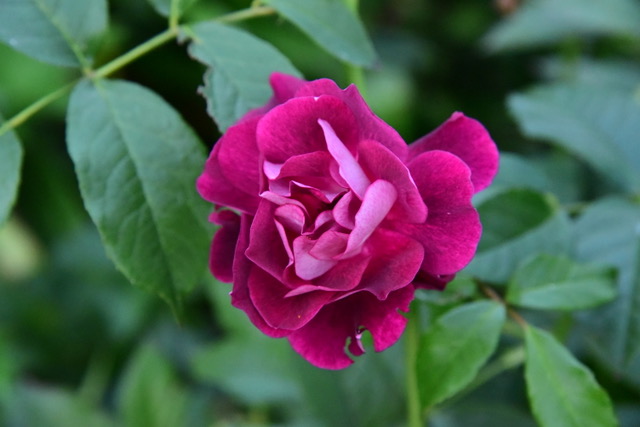
A Weekend in a One Hundred Star Hotel
by SABA SHADABI
“Which hotel are we going to stay in? I won’t stay at a two star hotel. The food is usually terrible and sometimes the bed sheets aren’t clean!” — this was my definite answer to my husband when he first suggested that we stay at an unfamiliar hotel in a remote village in a distant part of Iran. But as we talked things out, I changed my mind and I agreed to go with him to Mazgan in the northern state of Kashan, where the villagers — who are all Bahá’ís — make their living from selling rose water. As a lover of roses, I was curious about how rose water is made and eager to learn what life is like in a Bahá’í village. I overlooked the possibly questionable facilities, the food and the bed sheets, packed our bags and set off with my husband for Mazgan.
Before we left, we had tried to plan our route. But we could not find the village on the map. Nor did it appear in any navigation system. Our friends told us, “Whatever you do, don’t ask the people of Kashan about the route to Mazgan. They may be bigoted Muslims, and if they find out that you are Bahá’í, they will give you a hard time.” Strangely, these kinds of comments made me even more determined to see Mazgan. When we came to Kashan, we saw no sign to guide us to Mazgan, so we simply said a prayer to get the courage to ask the route from the right person. At last, we met a taxi driver who, quite unexpectedly, smiled at us and told us he was happy to take us there.
At last, we reached Mazgan. The whole village smelled of roses. We walked to the home of our hosts, a poor family, who welcomed us as if we were old friends. Their house was built on the top of a hill, and although there wasn’t any pool, restaurant or gym, it was, I was to learn, a one hundred star hotel. Our hosts invited us to share their simple dinner and afterwards we went to the garden to help pour rose water into bottles. The family had boiled roses in a big pot of water, which was heated by coal. Then the steam was piped into a huge jug filled with cold water. When the steam cooled, what you had in the jug was rose water. I was so close to the roses that I felt my body was a part of them. That night, we slept on the balcony, and I counted hundreds of stars before I fell asleep.
The next day, our last in the village, we woke up at five to go to the rose garden and harvest the roses. That morning, I found hundreds of rose petals on the ground and I thought of the hundreds of stars in the sky the night before. How had I managed to find a whole village of welcoming and hospitable people? Can you think of even a five star hotel that can offer the traveler these things? In Mazgan, the village of roses, I had the privilege of staying in a one hundred star hotel. There I experienced life in its purest form. When the neighbors came to help us harvest the roses, our host invited them to breakfast. It seemed that everyone in that place was a member of one big family. Yes, they belonged to one family — the family of Bahá’u’lláh. This journey not only changed my taste in travel, it also gave me a taste of what life might be in a world where all people are united by the same powerful faith.
Photo by Bev Rennie

